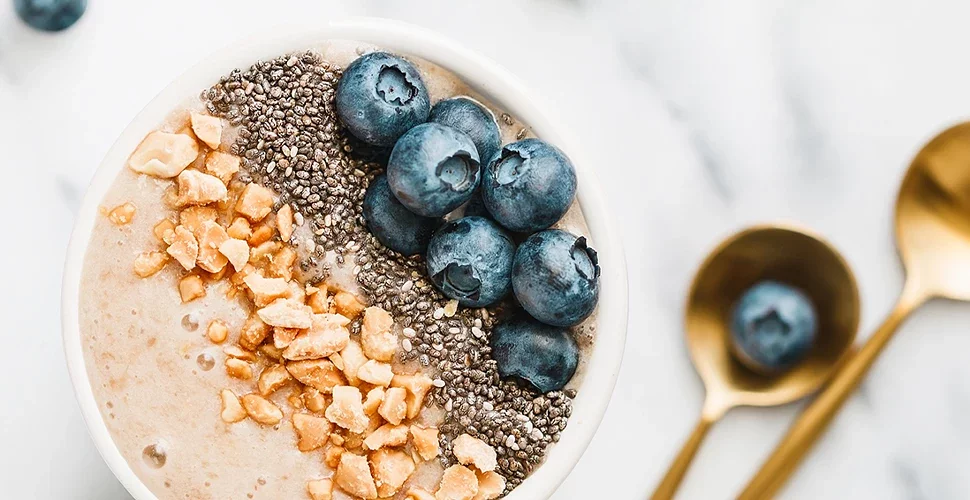Tue 13 Dec 2022
How does exercise benefit gut health?

SHARE THIS POST
Emerging research shows that gut microbiota benefits when humans exercise
We all know that regular exercise is vitally important for our physical health and mental wellbeing. If that isn’t motivation enough, emerging research shows that our gut and our gut microbiota (GM) - trillions of microbes that live within our guts – will also benefit.
What’s the link between exercise and gut health?
Our understanding of the significant link between our gut and general health and wellbeing has improved hugely in recent years. We know that many elements of a modern day diet and lifestyle influence the gut’s function and composition, but the impact of exercise is a fairly new area of research. So far there have been several animal studies, and now increasingly more studies in humans show that exercise is beneficial for our gut health and can enrich our GM diversity (ref 1, 2, 3, 4).
"Having more diversity is linked with better overall health."
Still, more research needs to be done to fully grasp how exactly exercise benefits our gut - after all, everyone’s GM is totally unique and therefore everybody’s response to exercise will be different. Maybe there’s a need for personalisation in exercise? Possibly it’s not just how much exercise you take, but the type of exercise and when you exercise that matters for maximum impact.
Why does exercise benefit our gut?
First off, being more physically active improves our bowel habits (more pooping, in simple words) by stimulating our gut muscles, helping to push and speed up the passage of food through our digestive system and beat constipation – as well as ease symptoms of other digestive problems, including Irritable Bowel Syndrome (IBS).
Enjoying a regular fitness routine has also been shown to increase the diversity of our gut microbes and enhance the number of helpful microbial species, like butyrate-producing bacteria, which can promote repair of the gut lining and reduce inflammation.
In fact, gut researchers suggest that exercise-induced changes in our GM can be brought about independently of dietary intake – meaning that it’s not just because people who exercise regularly tend to eat a healthier diet (5).
Build an exercise routine that works for you
Regular exercise will bring you the most gut health rewards, and your GM is not fussy about the type of exercise you do! So, if you’re not a big fan of the gym, don’t join a club only to give it up a month later. Exercise is very personal, so find out what works for you and you’ll be much more likely to stick to it.
Despite the amazing benefits of exercise for both our body and mind, prolonged strenuous exercise can distress our gut and cause discomfort in some people – newly named ‘exercise associated gut discomfort’ (1, 5, 6). This not only affects people’s enjoyment of doing exercise, but also impairs performance or subsequent recovery. The good news if you’re struggling with gut symptoms like nausea, diarrhoea, and cramps - nutritional training and appropriate nutrition choices can help reduce the risk of gastrointestinal troubles during exercise, so take advice from a sports nutrition specialist.
Nourishing your body
Lastly, the importance of a healthy diet when exercising is something we cannot emphasise enough. Everything you eat and drink has an effect on your body when you exercise. While it’s important to stay hydrated and eat an adequate meal after exercising, helping your body to recover and repair, it’s actually what you eat and drink every day that plays the biggest part.
It’s essential to eat a wide variety of healthy foods, including lots of plants, as your body and gut need a diverse balance to be nourished, also helping you get the most out of your exercise routine.
Exercising regularly, eating well and living well will help you feel good and keep your gut health and gut microbes in tip-top shape. Make a start today, and a healthier gut (and healthier you) are just around the corner!
References:
Clarke S.F et al. (2014) Exercise and Associated Dietary Extremes Impact on Gut Microbial Diversity. Gut 63 (12): 1913-2o.
O'Sullivan O, Cronin O, Clarke S.F, et al. (2015) Exercise and the microbiota. Gut Microbes; 6:131–6.
Cronin O, Molloy MG, Shanahan F. (2016) Exercise, fitness, and the gut. Curr Opin Gastroenterol ;32:67–73.
Barton W, Penney N.C, Cronin O, et al. (2018) The microbiome of professional athletes differs from that of more sedentary subjects in composition and particularly at the functional metabolic level. Gut; 67: 625-633.
Rossi M. (2019) Eat Yourself Healthy. Penguin, Random House, UK.
Costa R.J.S, Snipe R.M.J, Kitic C.M, Gibson P.R. (2017) Systematic review: exercise‐induced gastrointestinal syndrome —implications for health and intestinal disease. Available at https://www.onlinelibrary.wiley.com/doi/full/10.1111/apt.14157


















